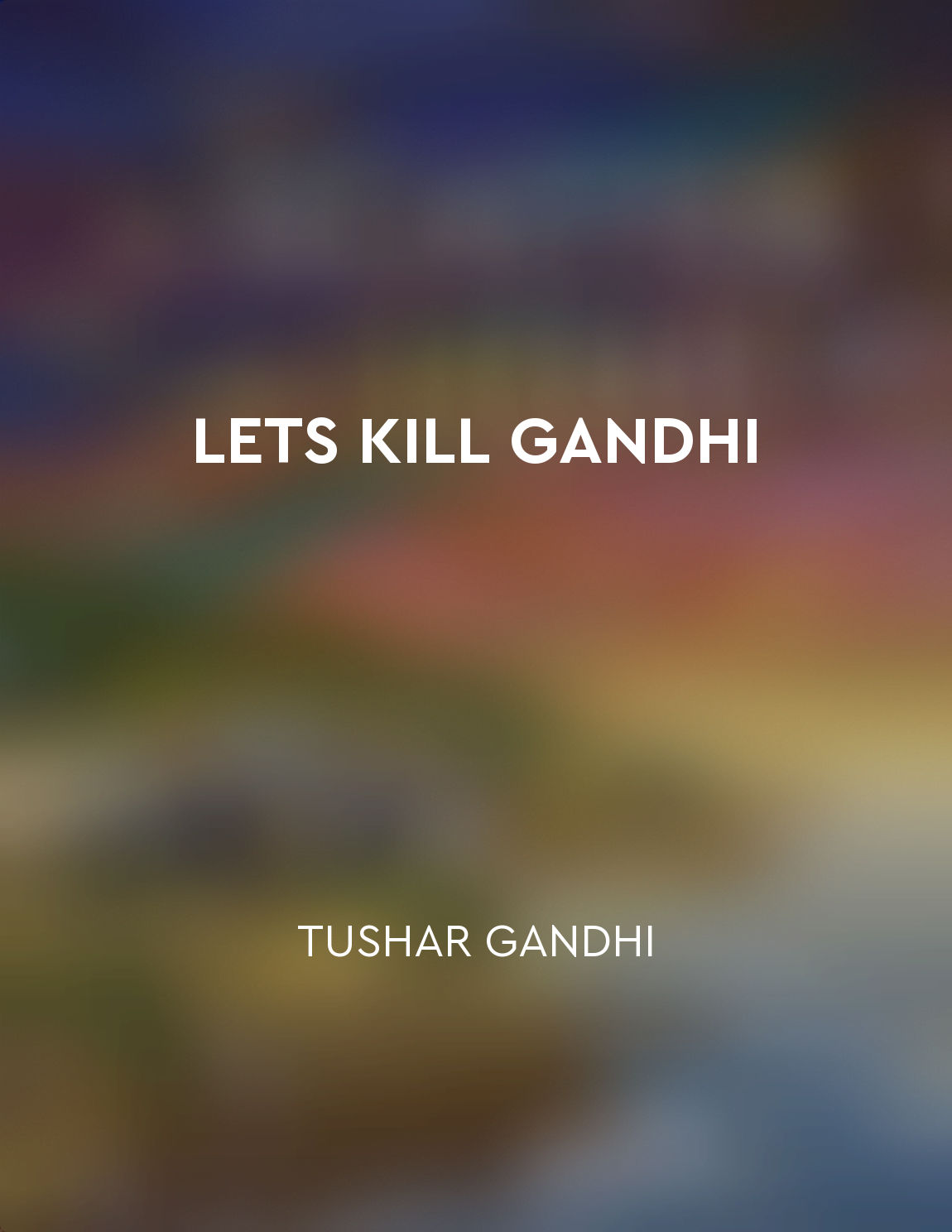Audio available in app
Influence change through civil disobedience from "summary" of Mahatma Gandhi : His Own Story by C. F Andrews
Gandhi firmly believed in the power of civil disobedience as a means to bring about change. He saw it as a way to peacefully resist unjust laws and oppressive systems. Civil disobedience, in Gandhi's view, was not about causing chaos or violence, but rather about standing up for what is right in a nonviolent and respectful manner. Through civil disobedience, Gandhi sought to challenge the status quo and create a more just and equitable society. He encouraged people to peacefully protest and refuse to comply with unjust laws, even if it meant facing consequences. Gandhi himself was willing to go to jail for his beliefs, showing his commitment to the cause. G...Similar Posts
Military technology has not made war obsolete
Despite the advancements in military technology, war continues to be a prevalent aspect of human society. The belief that techn...
Indian literature and music
Indian literature and music are integral parts of the rich cultural heritage of India. They have played a significant role in s...
South Asian literature has produced works of profound beauty and insight
Throughout history, the literature of South Asia has captivated readers with its profound beauty and insightful perspectives. T...

Tushar Gandhi delves into the psychology of the assassins
Tushar Gandhi explores the minds of the individuals who plotted and carried out the assassination of Mahatma Gandhi, shedding l...
The Constitution was a tool for empowering the marginalized
Dr. Ambedkar viewed the Constitution as a powerful mechanism to uplift and empower those who had long been marginalized and opp...
Wars and conquests reshaped the political landscape of the ancient world
Wars and conquests were not merely events of violence and destruction, but were also transformative forces that significantly a...
The consequences of his actions ripple through different realities
Jason Dessen, a physicist, finds himself in a strange new reality after being abducted by a masked man. This version of reality...
Rise of revolutionary leaders
The rise of revolutionary leaders during India's struggle for independence was a pivotal development that changed the course of...
The decline of violence is due to the rise of civilizations
The decline of violence over the course of human history is a phenomenon that has puzzled scholars and thinkers for centuries. ...
The key to liberation lies in noncooperation
The essence of true freedom, as articulated in the words of Étienne de La Boétie, is found in the act of noncooperation. It is ...
